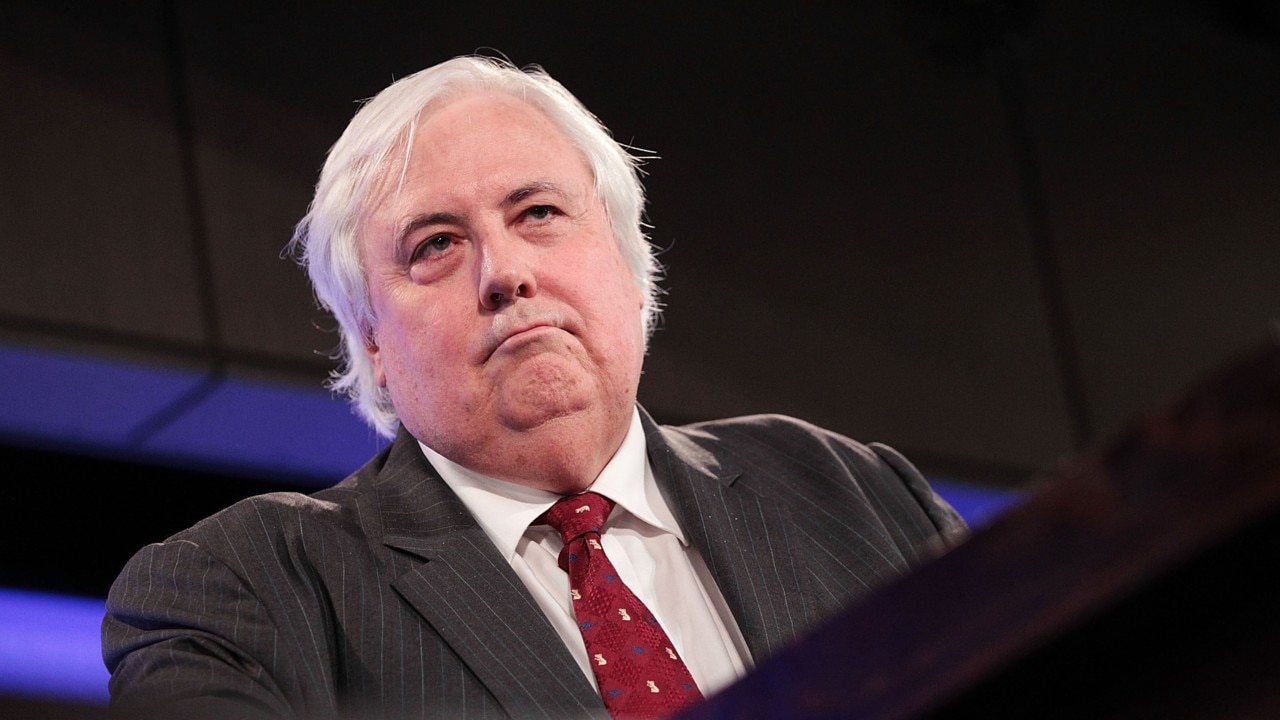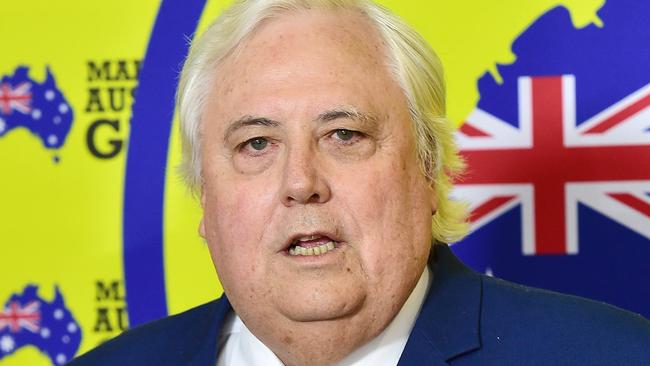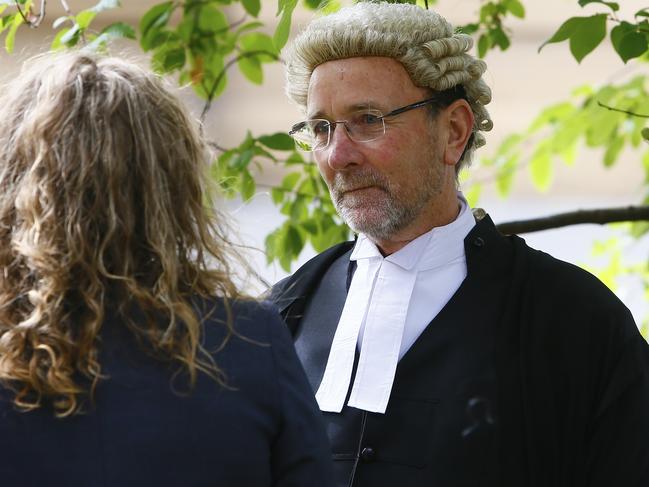Tasmania backs Western Australia in High Court border fight against Clive Palmer
Tasmania will join Western Australia’s High Court fight against Clive Palmer to argue border closures are “reasonably required” to limit the spread of COVID-19.

Coronavirus
Don't miss out on the headlines from Coronavirus. Followed categories will be added to My News.
- Top bureaucrat jumps jobs after toxic workplace claims
- Library sex offender has history of similar crimes
TASMANIA will join Western Australia’s High Court fight against Clive Palmer to argue border closures are “reasonably required” to limit the spread of COVID-19.
The state has joined forces with Victoria, Queensland, South Australia, the NT and ACT to back WA’s border restrictions amid concerns the case could set a precedent that would restrict future closures.

It comes as Tasmania prepares to reopen its borders to a handful of states on Monday for the first time since March.
Tasmania’s Solicitor-General Michael O’Farrell has made a written submission to the High Court ahead of a two-day trial in November which backs WA’s border closures as “reasonably required” to limit the spread of coronavirus.
In it, he argues no other isolation measures apart from the border restrictions “would be equally effective to reduce the risk of reintroduction of COVID-19 into the Western Australian community and the risk of community transmission amongst the community”.
“Relaxing the measures will increase the risk of morbidity, mortality and community
transmission,” he said.

Mr O’Farrell argues the risk of pre-symptomatic or asymptomatic cases entering WA was
“substantially greater” without community isolation measures and border restrictions.
His written submission argues that it is up to each state government to decide how to tackle the spread of the virus.
It also states the freedom of interstate movement enshrined in the Australian Constitution is not a “personal or individual right”.
“There is no serious suggestion that the directions discriminate against interstate trade and in doing so also protect the interests of intrastate trade. There is no suggestion of protectionism at all,” Mr O’Farrell’s submission says.
“Although it is recognised that the constitutional guarantee of freedom of interstate
intercourse extends to a guarantee of personal freedom ‘to pass to and fro among the
states without burden, hindrance or restriction’, there is nothing in the current authorities
to indicate that such a guarantee amounts to a personal or individual right.”
He argues Section 92 of the Constitution and the freedoms it guarantees “operate to impose a limitation on the legislative powers of the States and the Commonwealth”.
The section states: “On the imposition of uniform duties of customs, trade, commerce, and intercourse among the States, whether by means of internal carriage or ocean navigation, shall be absolutely free.”
Mr O’Farrell has requested 10 minutes to make Tasmania’s case at the November 3-4 trial at the High Court in Canberra.


